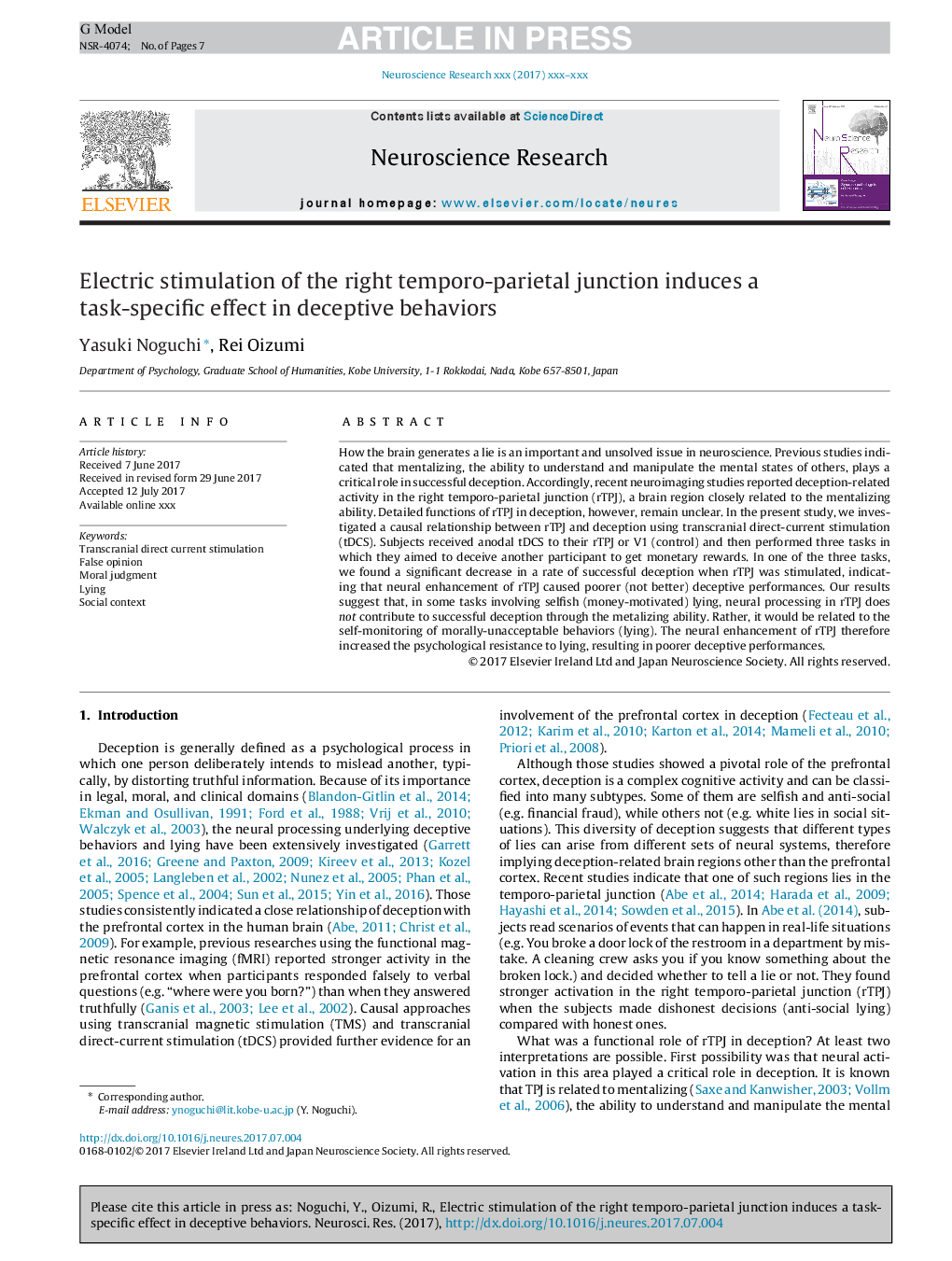ترجمه فارسی عنوان مقاله
تحریک الکتریکی از اتصال جابجایی موقتی-پاریتال یک اثر خاص کار را در رفتارهای فریبنده ایجاد می کند
عنوان انگلیسی
Electric stimulation of the right temporo-parietal junction induces a task-specific effect in deceptive behaviors
| کد مقاله | سال انتشار | تعداد صفحات مقاله انگلیسی |
|---|---|---|
| 130078 | 2018 | 7 صفحه PDF |
منبع

Publisher : Elsevier - Science Direct (الزویر - ساینس دایرکت)
Journal : Neuroscience Research, Volume 128, March 2018, Pages 33-39
ترجمه کلمات کلیدی
تحریک جریان مستقیم ترانس کرانانیال، نظر نادرست، قضاوت اخلاقی، دروغ گویی، زمینه اجتماعی،
کلمات کلیدی انگلیسی
Transcranial direct current stimulation; False opinion; Moral judgment; Lying; Social context;

